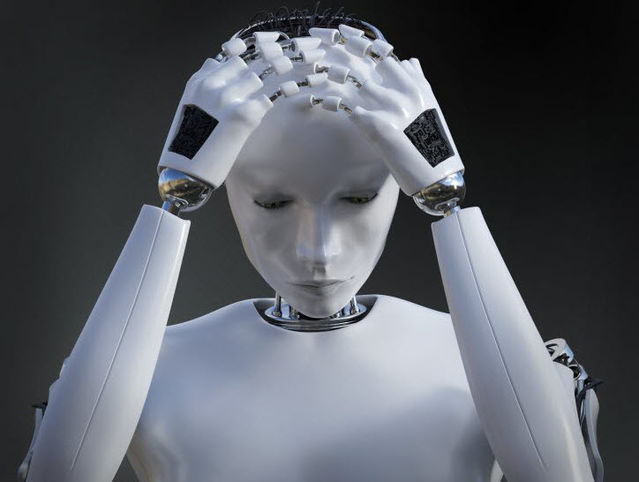Artificial Intelligence
Why Psychology Is Essential in a Future Dominated by AI
Artificial intelligence will likely increase demand for human counseling.
Posted November 16, 2017

In a future where artificial intelligence (AI) is ubiquitous, psychology will remain a resource for helping people cope with the uncertainty and change. As the world becomes increasingly more technological, so does the need for human-based counseling and connection.
AI is well along its path to surpass capabilities of human intelligence. The first AI research project was launched in 1956 at Dartmouth and is generally considered the birth of artificial intelligence. The convergence of several technology trends has enabled AI researchers to achieve breakthroughs and become commercially available. The contributing factors include the lower cost of decentralized and on-demand cloud-based computing, the availability of Big Data, the decreasing costs to store data, and the increasing sophistication of algorithmic machine learning. Apple, Google, GE, Intel, Microsoft, Oracle, IBM, and Amazon are incorporating AI in their solutions for Fortune 500 and mid-market companies. Venture capital companies invested $5 billion in 550 AI startups in 2016 according to CB Insights.
People by nature are largely risk-averse and tend to avoid discomfort and uncertainty. AI’s disruption of the workplace and displacement of both blue-collar and white-collar workers will cause increased anxiety and stress as people struggle to cope with change. By 2025, automation will replace 16 percent of U.S. jobs with an offset of 9 percent new jobs created in areas such as curation of content, data science, and management of robots and automation according to Forrester’s June 2016 report. Occupations that have repetitive or routine tasks will be at risk. Psychology and social work are jobs that are relatively inelastic to AI automation due to the inherent variable and custom nature of the work involved.
AI is being deployed in social media applications to increase our overall digital engagement time. Our attention is being diverted from the physical world. As artificial intelligence, deep learning and machine-based learning continue to develop, so will our dependence on all things digital. The time an average American spends using a mobile device is increasing. According to Flurry data, the average U.S. consumer spends five hours a day on a mobile device in Q4 2016, a 20 percent increase from 12 months prior [1]. In-person interaction is decreasing as electronic engagement is increasing. People are spending more time on electronic media than sleeping. Per Gallup, Americans average 6.8 hours of sleep nightly in 2013, down nearly a full hour from the average 7.9 hours of sleep in 1942 [2]. Smartphone and social media addiction, powered by AI, is decreasing overall attention spans while increasing sleep problems, which in turn may lead to increased demand for psychological counseling and social services.
Artificial intelligence (AI) is rapidly permeating companies across industry sectors. AI automation will cause a spike in social issues as workers across multiple industries and functions struggle in the face of uncertainty and potential job loss. AI in social media and smartphone applications will increase overall digital user engagement time, along with the associated social problems of attention deficit, isolation, and sleep disorders. As artificial intelligence rises, so will the demand for face-to-face human counseling and connection.
Copyright © 2017 Cami Rosso All rights reserved.
References
1. Khalaf, Simon and Kesiraju, Lali. “U.S. Consumers Time-Spent on Mobile Crosses 5 Hours a Day.” Flurry, March 2, 2017.
2. Jones, Jeffrey M. “In U.S., 40% Get Less Than Recommended Amount of Sleep.” Gallup, December 19, 2013.


